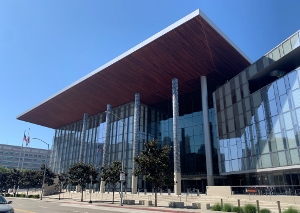Probation Violation Case Results
For a sample of our probation violation cases, click on the following case summaries to read a detailed description of each case.
Long Beach, DUI While on Probation for Manslaughter, 90 Days
Long Beach and Torrance, Failure to Register as Sex Offender
Torrance, 42 Days Probation, Violation, 1 Year Treatment Program
Probation Violation, Drug Sales, No Jail, Airport Courthouse
- Probation Violation Hearing, Long Beach, No Punishment
- East Los Angeles Probation Violation, DUI, 12 Year Warrant
- Fullerton, DUI Probation Violation, 4 Year Bench Warrant
- Long Beach, Client Does Zero NA Meetings in 18 Months
- Probation Violation, Metro Court, 2001 & 2003 Bench Warrants
- Van Nuys Probation Violation on DUI, Bench Warrant 4 Years
- Probation Violation, Torrance, Bench Warrant for 9 Years
- Probation Violation, Long Beach, 16 Year Bench Warrant
- Probation Violation, Fullerton, Second DUI After First DUI
- Compton, On Probation for Attempted Pandering, Violation
- Torrance, DUI Probation Violation, New VC 14601.2 Case
- Torrance, Probation Violation on 211 Case, Drug Treatment
Probation violations are one of the most common types of cases we handle. As the above case results show, there are often big risks – prison or jail time, which can turn a family upside down in many ways, including financially and emotionally.
The fundamental concept that most of our clients understand is that probation is a contract one makes with a judge. It is a promise to do or not do certain things and if one breaks that promise, the judge can punish the transgressor in various ways.
Probation violations can be based on a new criminal case or, more commonly, a failure to perform some condition of probation that the client promised.
When there is a new criminal case, judges often immediately ask the client to admit the violation before the new case is adjudicated. If one believes that there is a valid defense to the new case, one obviously should not admit the violation.

Indeed, the California Supreme Court has announced a preference for probation revocations to trial the new case: "we wish to note that the most desirable method for handling the problems of concurrent criminal and probation revocation proceedings may well be for revocation proceedings not even to be initiated until after disposition of the related criminal proceedings." People v. Coleman (1975) 13 Cal.3d 867, 896. "Most desirable" and "not to be initiated" and "until after disposition" are the operative words there.
The Supreme Court then emphasized, four years later, that "prosecutors [should not] routinely disregard our recent admonition that the most desirable method of handling such cases is to refrain from initiating revocation proceedings until the related criminal prosecution is completed." People v. Belleci (1979) 24 Cal.3d 879, 888, fn. 7 [emphasis added], citing Coleman, supra at 896.
 Governor George Deukmejian Courthouse
Governor George Deukmejian CourthouseLong Beach Superior Court
When the offense related to DUI or a drug offense, we often recommend that the client consider attending Alcoholic Anonymous (AA) classes or Narcotics Anonymous (NA) meetings in advance of requesting a bench warrant recall, to show the judge that the individual is trying to comply with the spirit of probation for such cases.
When the client comes to us within three years or five years of the conviction with a probation violation, the goal is always to have the client reinstated on probation. This can mean that the judge add to the terms of probation as a sanction or penalty for the violation.
Lastly, it merits mention that probation can be extended within the maximum period of probation (usually five years) if it was unknown at the time probation was granted that restitution could not be paid within the original period of probation, even if the failure to pay is not a violation (i.e., the defendant did not have the ability to pay). People v. Cookson (1991) 54 Cal. 3d 1091. Even if there is a violation, probation cannot be extended beyond the maximum period of probation absent the consent of the defendant (except in some very unusual circumstances). People v. Jackson (2005) 134 Cal.App.4th 929.
For more information about probation violations, click on the following articles:
 Greg Hill & Associates Home
Greg Hill & Associates Home




















